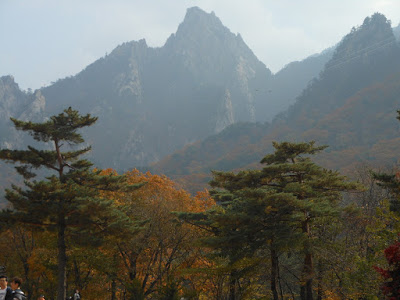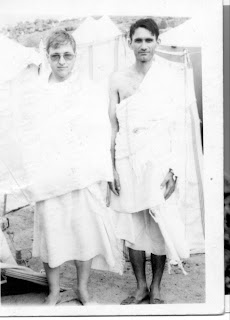Diary Tuesday 21 April 2020 [with updates 3 May and 7 May below]:
Recently I converted many old VHS-C and mini-DV videos of our family to MPG files on my computer and in doing that I saw a lot of film I had recorded 10-20 and more years ago.
I heard in the films how I talked to our children and felt very embarrassed by the impatient, even angry tone I used all too often. Then the other day I read for the first time the quote from Peggy O'Mara: "the way we talk to our children becomes their inner voice." It really hit home. I feel very bad about it now, but why didn't I realize that much earlier when I could have changed it?
When I think back to my own childhood I remember my parents also often spoke that way to me and my younger brother. The four siblings who were born later were lucky, because my father especially mellowed very much after the first of our sisters joined the family. I don't remember him beating them or even screaming at them the way he did to us from time to time. My father didn't humiliate and belittle them as he tended to do with us elder sons. My mother did the same to us, too, though she hardly ever beat us. She mostly just followed my father's example as he was always the dominant figure in our family.
When I joined the Unification Church (as it was then called) in America in 1975 I gained a new father figure: Rev. Sun Myung Moon. We, his followers, learned to regard him as the “True Father” of humankind, meaning the restored Adam of the Bible.
Diary Sunday 3 May 2020 (continued from 21 April):
I have always had an inner voice telling me I am no good, I will fail at almost everything, and I should just give up. That voice was sometimes so strong it paralyzed me.
Also, whenever I had an argument with someone there was always a voice inside me supporting that other person's side. So I could never really be sure of anything at all. I could never completely believe in anything or trust anyone fully, and I could never have self-confidence.
At the same time I could never really fit in anywhere and was always ill at ease with myself, even when I was alone in nature. I am nearly 70 years old now and this is still mostly the same.
I was also always in silent rebellion, against any authority figure, any group to which I belonged, any environment in which I found myself, and of course most especially against God, or rather the very concept of God which I had been taught. This has not changed as I have aged. I don't know why this is the case but I feel it has something to do with my peculiar sense of justice.
I remember discussions I had with my father when I was in my late teens and early twenties. Today I don't recall details of any of those discussions but what remains clearly in my mind is that we disagreed on questions of justice. My father tended to support the authority of the state, the police, the military, whereas I always argued in favor of people who opposed it – rebels, dissidents and minor criminals (though never rapists and murderers).
Of course, there was always my inner voice agreeing with my father. I don't think I ever really won any argument.
When I joined Rev. Moon's Unification Church I tried very hard to find God and love, which somehow remained an alien concept to me even though I do believe my parents loved me. I now think I never really understood their love because to me it meant simply that I was indebted to them, which is a point they tended to over-emphasize. This caused a feeling of deep alienation in me, because it was clear I could never repay that debt.
It turned out that Rev. Moon's love was the same, and so was God's love the way he always explained it. We and all humankind were hopelessly indebted to God and Rev. Moon for all they had done and suffered for us fallen, sinful, faithless children.
I know Rev. Moon said many beautiful and inspiring things in his innumerable, lengthy speeches to us members of his movement. I heard many of them when I was in direct attendance in America and in recorded versions later. But what often struck me more than the good points he made were his accusations that we had failed, causing God and him and his family much grief. He always claimed credit for himself for any success achieved by our movement and blamed us for absolutely all failures.
He claimed or at least implied that he always, without fail, did his utmost best to win a victory, seemingly wanting us to believe he was perfect. This is what most of us tended to believe. He created around himself an aura of invincibility, of perfection and near-omniscience. When one of his sons died in an accident he blamed us for it because we had allegedly failed to fulfill the spiritual conditions required to protect him.
He also often threatened us with persecution by evil spirits because we failed to accomplish the very high goals he always set for us in terms of money earned by fundraising or people recruited into the movement or gathered to attend his public speeches.
Rev. Moon's accusations, threats and frequent angry outbursts left a much deeper imprint on both my heart and mind than all the good, positive things he always spoke about God's love and beauty. When I think about it I am sure he did say a lot more good than bad. But the good was always like ice cream – it tasted great for a moment but quickly melted away. The bad is what remained in my memory, not the details but the general impression.
The same goes for talks I heard given by many high-level lieutenants of his, all of whom I can only regard as sycophants, bootlicks.
Of course, as usual, there was always an inner voice in me mostly agreeing with what Rev. Moon said. Thus, even though his speeches often made me angry, I was still impressed and even awed at times. And I kept going back for more of the good, inspiring stuff – the “ice cream.”
I was never sure my judgment was right, so in the end I left it up to him and my leaders and also the more faithful members around me to guide me. I did go my own way again and again in the movement when my feeling of alienation became too strong. But in those cases I always just insisted on changing jobs or “missions” or places within the movement rather than leaving altogether.
This continued for 20 years until the mid-1990s when I began to gradually shed my belief in Rev. Moon as the Messiah and “True Parent,” and his teaching the Divine Principle, and finally the whole concept of God itself. The most that idea of God had ever represented to me was a good, warm but brief feeling I sometimes enjoyed in prayer. That was all. I never found God.
Today I remain connected to Rev. Moon's movement through my family only.
Important addendum 20200507: Over the years after I joined the Unification Church Rev. Moon came to completely overshadow my own father as a domineering figure because he seemed to have no vulnerabilities or weaknesses, unlike the man who raised me.















